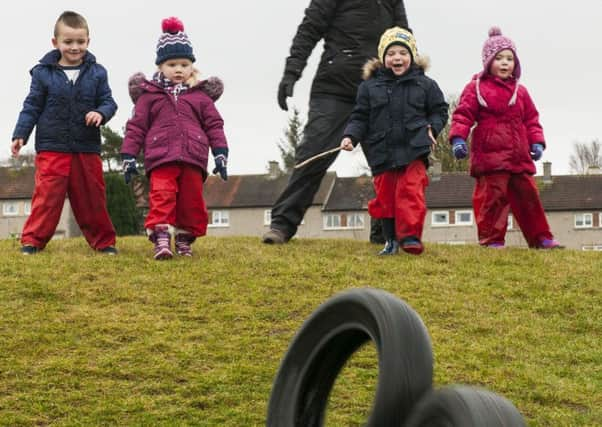Leader comment: Scotland's children have the right to good health


Scotland has long prided itself on being an egalitarian country with national characteristics which include hard work and inclusiveness. But these sentiments will be of little comfort to a child living in a house which its parents cannot afford to heat, or who cannot put a decent meal on the table.
The State of Child Health report, which for the first time brings together data on 25 health indicators, shows that more than 210,000 children in Scotland live in poverty, and that the alarming gap between rich and poor is putting children’s health at risk.
Advertisement
Hide AdAdvertisement
Hide AdOne of the most telling signs of an “advanced” society is the health of its children. Yet there can be no doubt that something is going badly wrong.
The report, which also examines conditions such as asthma, diabetes and breast-feeding rates, provides a stark and accurate “snap shot” which should come as a wake-up call to those tasked with formulating policies to improve child health.
We all know that Scotland has long-standing health problems so the findings which include the fact that 27 per cent of our children are overweight or obese, with higher levels in deprived areas, and that more than 29 per cent of pregnant women in the poorest areas are smokers compared to just 4.5 per cent in the least deprived, sound depressingly familiar.
Yet, it also seems wrong that we are still lagging behind other countries when there have been so many high-profile initiatives such as breakfast clubs, giving out free fruit to improve diet, free tooth brushes and toothpaste, and exercise initiatives with a fun element to capture youngsters’ imagination.
Of course the economy is important in achieving our goals, as is education, to make sure that we get it right to give poorer children a chance to make something of their lives.
But looking at individual health campaigns is a “scatter gun” approach which fails to get to the root or roots of the problem.
The fundamental question we must ask ourselves is “how can it be that in 21st century Scotland, the health of so many of our most vulnerable children is so appalling?”
It cannot be difficult to find out what works and what doesn’t, to look at what other countries are doing succesfully and see if it would work here. For example, we know for a fact that children learn from their parents at home. So, how do we get parents to adopt better behaviour such as healthy eating and exercise, so that setting this example passes to their children?
Advertisement
Hide AdAdvertisement
Hide AdThe report concludes that without interventions to close the wealth gap, and targeted support, Scotland will continue to fail its children.
The health of future generations is in our hands, we must take action to let them flourish, and fulfil their potential.